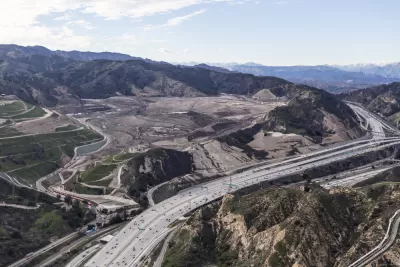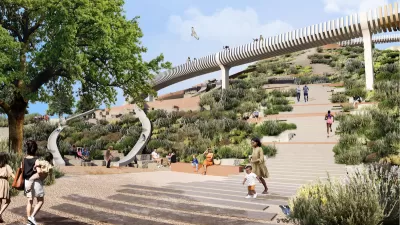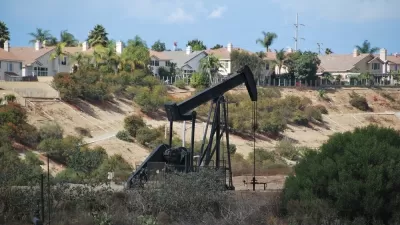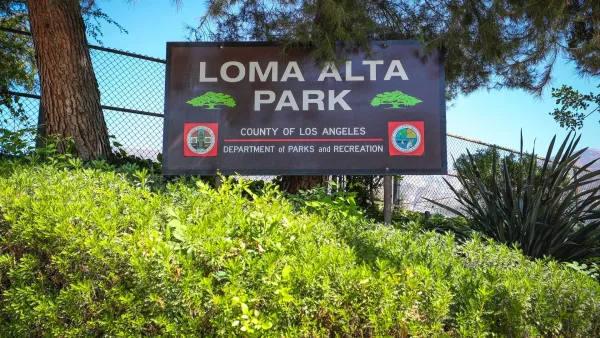The restoration of degraded lands, including properties occupied by abandoned, redundant, or unwanted infrastructure, is of great importance in Los Angeles County, where numerous underserved communities are plagued with environmental burdens.

Degraded lands are often found in areas that have the most environmental burdens with respect to groundwater threat, hazardous waste, poor air quality, pollution burden, etc. These lands include properties occupied by abandoned, redundant, or unwanted infrastructure, such as decommissioned landfills, oil wells, rail yards, utility corridors, airports, and power plants. In Los Angeles County, many of the most environmentally burdened communities are also the most park poor per the Countywide Parks Needs Assessment and the most climate-vulnerable per the County Climate Vulnerability Assessment.
In locations where environmental burdens are concentrated and impactful land uses are defunct, multiple benefits can be derived from restoration projects like new parks that address residual pollution and unhealthy conditions, restore natural systems, and provide enhanced recreational opportunities for residents. In this article, park planner Clement Lau makes the case for a reimagined conservation and restoration approach that prioritizes and focuses funding and other resources to acquire, clean up, and reclaim degraded lands for park use in the communities that have the most environmental burdens.

Planetizen Federal Action Tracker
A weekly monitor of how Trump’s orders and actions are impacting planners and planning in America.

Map: Where Senate Republicans Want to Sell Your Public Lands
For public land advocates, the Senate Republicans’ proposal to sell millions of acres of public land in the West is “the biggest fight of their careers.”

Restaurant Patios Were a Pandemic Win — Why Were They so Hard to Keep?
Social distancing requirements and changes in travel patterns prompted cities to pilot new uses for street and sidewalk space. Then it got complicated.

Platform Pilsner: Vancouver Transit Agency Releases... a Beer?
TransLink will receive a portion of every sale of the four-pack.

Toronto Weighs Cheaper Transit, Parking Hikes for Major Events
Special event rates would take effect during large festivals, sports games and concerts to ‘discourage driving, manage congestion and free up space for transit.”

Berlin to Consider Car-Free Zone Larger Than Manhattan
The area bound by the 22-mile Ringbahn would still allow 12 uses of a private automobile per year per person, and several other exemptions.
Urban Design for Planners 1: Software Tools
This six-course series explores essential urban design concepts using open source software and equips planners with the tools they need to participate fully in the urban design process.
Planning for Universal Design
Learn the tools for implementing Universal Design in planning regulations.
Heyer Gruel & Associates PA
JM Goldson LLC
Custer County Colorado
City of Camden Redevelopment Agency
City of Astoria
Transportation Research & Education Center (TREC) at Portland State University
Camden Redevelopment Agency
City of Claremont
Municipality of Princeton (NJ)





























